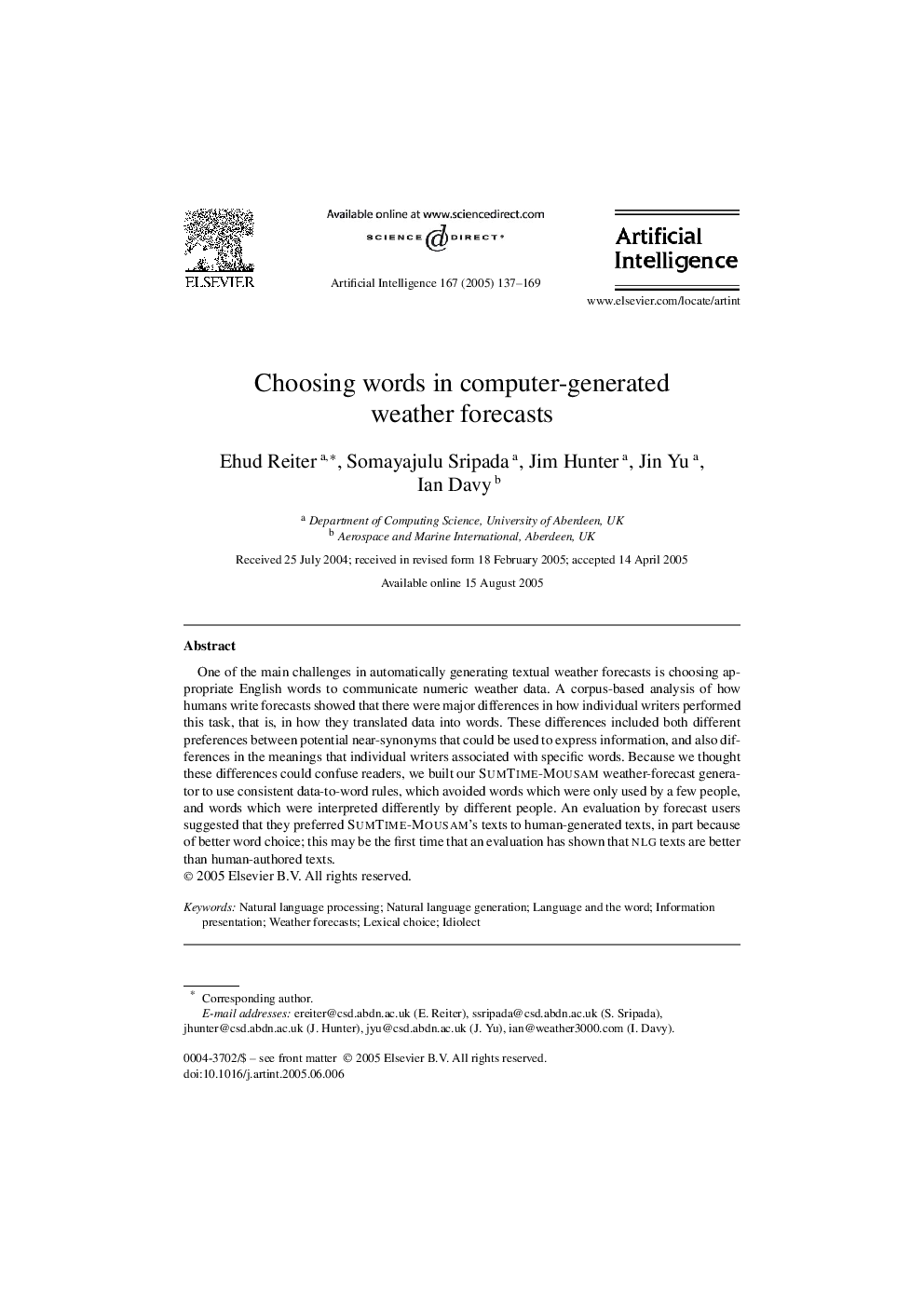| Article ID | Journal | Published Year | Pages | File Type |
|---|---|---|---|---|
| 9650004 | Artificial Intelligence | 2005 | 33 Pages |
Abstract
One of the main challenges in automatically generating textual weather forecasts is choosing appropriate English words to communicate numeric weather data. A corpus-based analysis of how humans write forecasts showed that there were major differences in how individual writers performed this task, that is, in how they translated data into words. These differences included both different preferences between potential near-synonyms that could be used to express information, and also differences in the meanings that individual writers associated with specific words. Because we thought these differences could confuse readers, we built our SumTime-Mousam weather-forecast generator to use consistent data-to-word rules, which avoided words which were only used by a few people, and words which were interpreted differently by different people. An evaluation by forecast users suggested that they preferred SumTime-Mousam's texts to human-generated texts, in part because of better word choice; this may be the first time that an evaluation has shown that nlg texts are better than human-authored texts.
Keywords
Related Topics
Physical Sciences and Engineering
Computer Science
Artificial Intelligence
Authors
Ehud Reiter, Somayajulu Sripada, Jim Hunter, Jin Yu, Ian Davy,
